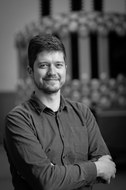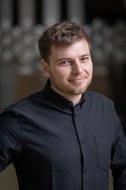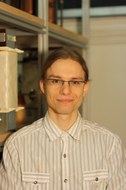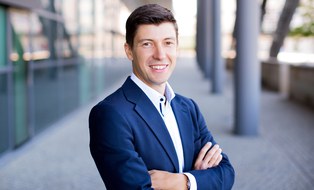Student theses
The general procedure of the Studienarbeit (SA, “student research project”) and Diplomarbeit (DA, “diploma thesis”) at the Chair of Components of Intelligent Energy Systems can be found below:
- Preliminary discussion together with the potential supervisor to get to know each other, introduction into the topic and the task assignment.
- Definition of the task assignment by the chair and mutual determination of the submission deadline (depends on the specified time in the study regulations)
- Familiarization with the topic by studying relevant literature and the support of the supervisor.
- Setting of the time schedule (e. g. Gantt chart) to ensure a timely and comprehensive completion of the task assignment.
- Execution of the experiments, model simulations, calculations, construction of test stands, establishment, verification of methods, …
- Evaluation and analysis of the results in consultation with the supervisor
- Writing the thesis
- Presenting the results in a defense (optional for student research projects for the study course Regenerative Energiesysteme RES)
Writing a thesis at our chair offers you the possibility to deepen your individual knowledge by working on theoretical or practical research topics. Your personal interests will be respected when searching or defining a topic for the assignment.
The student research project or diploma thesis will prepare you optimally to autonomously solve engineering problems and will encourage you to choose a scientific approach to problem-solving.
High Voltage
If you are interested in other topics for a thesis or dissertation in this area, please contact Thomas Linde.
 © Thomas Linde
© Thomas Linde
Dr.-Ing. Thomas Linde
Head of Research Group High Voltage Engineering
Send encrypted email via the SecureMail portal (for TUD external users only).
Chair of High Voltage and High Current Engineering
Visiting address:
Binder-Bau, TOE 116 Mommsenstraße 10
01069 Dresden
If you are interested in further topics for a student research project or dissertation in this area, please contact Dipl.-Ing. Thomas Linde
Ampacity and Heating
If you are interested in further topics for a student research project or diploma thesis in this field, please contact Dr. Robert Adam.
 © Stephan Schlegel
© Stephan Schlegel
Dr.-Ing. Robert Adam
Head of Research Group Ampacity and Heating
Send encrypted email via the SecureMail portal (for TUD external users only).
Chair of High Voltage and High Current Engineering
Visiting address:
Binder-Bau, BIN 120 Mommsenstraße 10
01069 Dresden
If you are interested in further topics for a student research project or dissertation in this area, please contact Dr.-Ing. Robert Adam
Electrical contact and connections
| SA |
Electromobility aims to increase the use of electrically powered vehicles in private transportation. The electrification of the drive system leads to new requirements for the joining processes used for current-carrying conductors if they are to carry electrical currents safely and with long-term stability. One forming joining process used in the automotive industry is clinching. In previous long-term studies, the contact behavior of clinch connections was always evaluated using the connection resistance or the quality factor. In order to be able to evaluate the contact behavior of these joints in more detail, it is necessary to calculate the proportions of the material and contact resistance in the joint resistance in FEM models. These resistance components are then used in parameter studies to evaluate the influence of various geometric parameters of clinch connections on the electrical contact behavior. |
| Start of work | immediately |
Supervisor
 © Markus Schladitz
© Markus Schladitz
Dipl.-Ing. Max Huter
Member of Research Group Current Carrying Capacity and Heating
Send encrypted email via the SecureMail portal (for TUD external users only).
Chair of High Voltage and High Current Engineering
Visiting address:
Binder-Bau, BIN 122a Mommsenstraße 10
01069 Dresden
| DA | The loads acting on an electrical connection are manifold. Up to now, finite element simulations, from which statements on contact behavior can be derived, have usually only examined the mechanics or the electrical or thermal flow field or a coupling of two of these variables. In this work, the interaction of mechanics and the electrical and thermal flow field in a model contact system is to be investigated using modern FE software. |
| Start of work | immediately |
Supervisor
 © Stephan Schlegel
© Stephan Schlegel
Dr.-Ing. Christian Hildmann
Head of Research Group Electrical Contacts and Connections
Send encrypted email via the SecureMail portal (for TUD external users only).
Chair of High Voltage and High Current Engineering
Visiting address:
Binder-Bau, BIN 122c Mommsenstraße 10
01069 Dresden
| DA/SA | The control of test technology for high-current tests and the temperature and resistance measurement technology used are to be linked and tested experimentally on a current-carrying long-term test. |
| Start of work | immediately |
Supervisor
 © Stephan Schlegel
© Stephan Schlegel
Dr.-Ing. Christian Hildmann
Head of Research Group Electrical Contacts and Connections
Send encrypted email via the SecureMail portal (for TUD external users only).
Chair of High Voltage and High Current Engineering
Visiting address:
Binder-Bau, BIN 122c Mommsenstraße 10
01069 Dresden
| DA/SA |
High short-time currents generally do not heat up current-carrying connections with surface contacts more than the connected conductor. However, depending on the current intensity, the microcontacts may also heat up to a non-negligible extent. The aim of the work is to investigate the electrical-thermal behavior of current-carrying connections under load with short-circuit current and to correlate it with simple estimates of the contact temperature. |
| Start of the work | immediately |
Supervisor
 © Stephan Schlegel
© Stephan Schlegel
Dr.-Ing. Christian Hildmann
Head of Research Group Electrical Contacts and Connections
Send encrypted email via the SecureMail portal (for TUD external users only).
Chair of High Voltage and High Current Engineering
Visiting address:
Binder-Bau, BIN 122c Mommsenstraße 10
01069 Dresden
| DA/SA | In numerous investigations, the force reduction on bolted connections with busbars was evaluated with the course of the connection force. A new evaluation of the existing and current test results is to be carried out on the course of the mean mechanical stress in the joint. |
| Start of work | immediately |
Supervisor
 © Anne Oehlert
© Anne Oehlert
PD Dr.-Ing. habil. Stephan Schlegel
Head of the High Current Technology division
Send encrypted email via the SecureMail portal (for TUD external users only).
Chair of High Voltage and High Current Engineering
Visiting address:
Binder-Bau, BIN 122c Mommsenstraße 10
01069 Dresden
If you are interested in further topics for a student research project or dissertation in this area, please contact Dr.-Ing. Christian Hildmann
Completed theses
You will find an overview of completed theses at our chair in the Link below.
